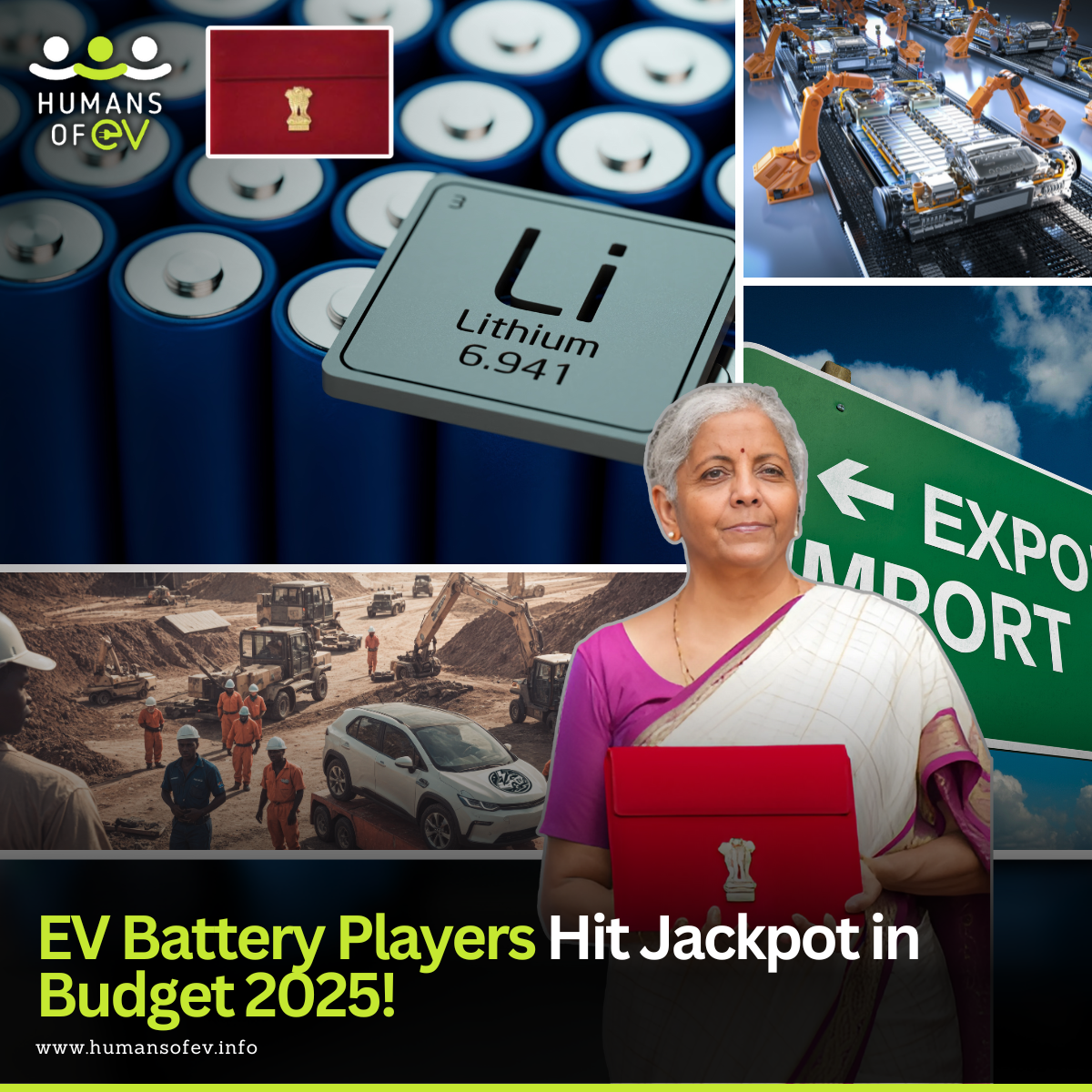
February 3rd, 2025
Strategic Duty Removal to Transform Critical Minerals Supply Chain
In a landmark move to strengthen India’s position in the global electric vehicle (EV) supply chain, the Union Budget 2025 has eliminated customs duty on waste lithium-ion batteries and scraps of 12 critical minerals. This strategic decision, announced by Finance Minister Nirmala Sitharaman, aligns with the government’s Rs 1,500 crore recycling incentive scheme under the National Critical Minerals Mission (NCMM).
Impact on Domestic Recycling Ecosystem
The removal of import duties marks a transformative shift for India’s recycling industry, particularly benefiting companies processing black mass—a valuable powder containing essential EV battery components like lithium, copper, manganese, cobalt, and nickel. Industry experts anticipate this move will significantly reduce raw material costs for domestic manufacturers while promoting sustainable practices in the EV sector.
Critical Minerals in Focus
The duty exemption extends to crucial materials including:
- Copper
- Tin
- Molybdenum
- Cobalt
- Tungsten
- Other strategic minerals essential for EV manufacturing
This comprehensive approach addresses the entire spectrum of materials needed in advanced battery production and electronics manufacturing.
Strategic Implementation Through NCMM
The National Critical Minerals Mission has set an ambitious target of 400 kilotonnes (kt) of recycled material production. With a substantial budget allocation of Rs 16,300 crore spread over seven years, the mission demonstrates the government’s long-term commitment to building a robust domestic supply chain for critical minerals.
Industry Implications and Future Outlook
For EV manufacturers and battery producers, this policy shift presents several advantages:
- Enhanced access to raw materials through domestic recycling channels
- Reduced dependency on international mineral markets
- Potential for more competitive pricing in the domestic market
- Strengthened supply chain resilience
The Ministry of Mines has also announced plans to develop comprehensive policies for mining waste recovery, indicating a holistic approach to resource management.
Environmental and Economic Benefits
This initiative serves the dual purpose of environmental sustainability and economic growth. By incentivizing proper recycling of EV batteries, India is positioning itself as a responsible player in the global EV market while creating new opportunities for domestic businesses.
Investment Opportunities
The government’s allocation of Rs 410 crore for FY 2025-26 specifically for the NCMM presents significant opportunities for:
- Recycling infrastructure development
- Technology advancement in mineral recovery
- Creation of specialized recycling clusters
- Research and development initiatives
Looking Ahead
As the EV industry continues to grow, this policy intervention is expected to catalyze investments in recycling infrastructure and technology. The government’s commitment to addressing potential challenges, including managing e-waste influx, suggests a well-thought-out approach to implementation.
For industry stakeholders, this represents a crucial moment to align their strategies with the government’s vision for a self-reliant and sustainable EV ecosystem in India.
The article is structured with appropriate H1, H2 headers, includes relevant keywords naturally throughout the text, and maintains optimal paragraph length for readability. The content provides valuable insights for both industry professionals and general readers interested in India’s EV ecosystem.


